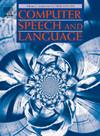基于对抗性修剪的语音TBI评估隐私保护特征提取器
IF 3.4
3区 计算机科学
Q2 COMPUTER SCIENCE, ARTIFICIAL INTELLIGENCE
引用次数: 0
摘要
言语是创伤性脑损伤(TBI)等医疗状况的有效指标,但通常包含私人信息,从而阻止了使用患者智能手机进行新的被动、真实的评估。语音处理的隐私研究主要集中在隐藏说话人的身份,这在身份验证系统中被利用,并且不能更新。我们的研究将隐私扩展到包括谈话内容,特别是谈话中的敏感词。先前的工作已经提出通过对抗训练来提取隐私保护特征,这种训练训练神经网络来防御对对抗网络同时试图访问的私人数据的攻击。然而,由于极大极小优化的固有局限性,对抗性训练存在一个尚未解决的训练不稳定性问题。相反,我们的研究引入了使用对抗性修剪(PPA-Pruning)的隐私保护。系统地从网络中删除节点,同时优先考虑那些对识别个人数据贡献最大的节点,这些数据来自训练有素的特征提取器,专为TBI检测和对抗任务而设计。ppa -修剪通过不同的隐私设置评估了各种隐私预算。值得注意的是,PPA-Pruning优于基线方法,包括对抗训练和拉普拉斯噪声,在相同的隐私水平下,TBI检测精度提高了11%。本文章由计算机程序翻译,如有差异,请以英文原文为准。
Privacy-preserving feature extractor using adversarial pruning for TBI assessment from speech
Speech is an effective indicator of medical conditions such as Traumatic Brain Injury (TBI), but frequently includes private information, preventing novel passive, real-world assessments using the patient’s smartphone. Privacy research for speech processing has primarily focused on hiding the speaker’s identity, which is utilized in authentication systems and cannot be renewed. Our study extends privacy to include the content of speech, specifically sensitive words during conversation. Prior work has proposed extracting privacy-preserving features via adversarial training, which trains a neural network to defend against attacks on private data that an adversarial network is simultaneously attempting to access. However, adversarial training has an unsolved problem of training instability due to the inherent limitations of minimax optimization. Instead, our study introduces Privacy-Preserving using Adversarial Pruning (PPA-Pruning). Nodes are systematically removed from the network while prioritizing those contributing most to the recognition of personal data from a well-trained feature extractor designed for TBI detection and adversarial tasks. PPA-Pruning was evaluated for various privacy budgets via a differential privacy setup. Notably, PPA-Pruning outperforms baseline methods, including adversarial training and Laplace noise, achieving up to an 11% improvement in TBI detection accuracy at the same privacy level.
求助全文
通过发布文献求助,成功后即可免费获取论文全文。
去求助
来源期刊

Computer Speech and Language
工程技术-计算机:人工智能
CiteScore
11.30
自引率
4.70%
发文量
80
审稿时长
22.9 weeks
期刊介绍:
Computer Speech & Language publishes reports of original research related to the recognition, understanding, production, coding and mining of speech and language.
The speech and language sciences have a long history, but it is only relatively recently that large-scale implementation of and experimentation with complex models of speech and language processing has become feasible. Such research is often carried out somewhat separately by practitioners of artificial intelligence, computer science, electronic engineering, information retrieval, linguistics, phonetics, or psychology.
 求助内容:
求助内容: 应助结果提醒方式:
应助结果提醒方式:


